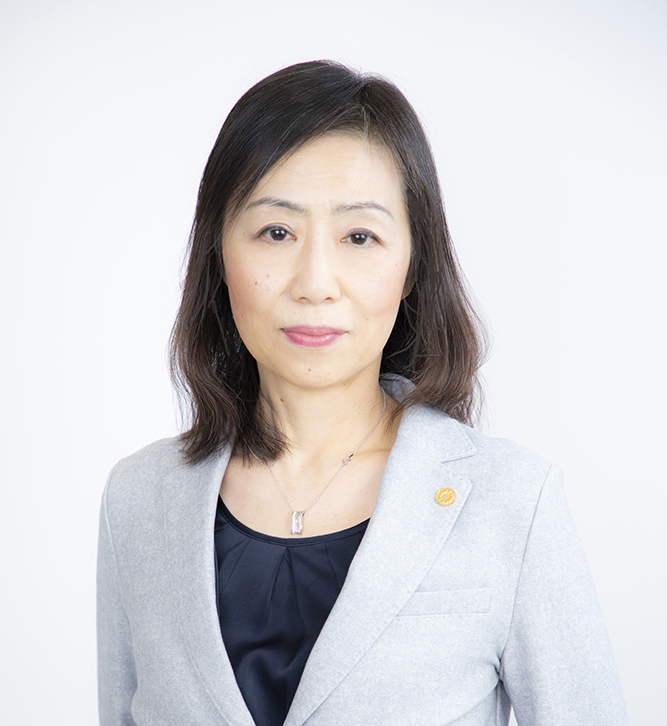SNS and Word of Mouth
1. ChatGPT and company establishment
I received a message from an American on WhatsApp the other day saying, “I want to start a company and obtain visa.” I have contacts that are not related to business through WhatsApp, email, messengers, and all kinds of SNS and apps, but this person’s message was quite serious, so I responded. I called him on WhatsApp and asked, “Where did you find out about my office & contact address?” He answered, “ChatGPT recommended it.” My colleague was surprised and said, “Isn’t it amazing that ChatGPT recommended you?”, but people using ChatGPT are typically young or IT guy using SNS for business, so it doesn’t really lead to business. Considering the content of the message, he was a few work experience after university and said he wanted to do a similar business in Japan because he made money from a side job related to Airbnb. Obviously, he didn’t want to spend as much money as possible on starting a company, he didn’t understand Japanese, but he wanted to move to Japan. I declined, saying, “If you want to save money, you should ask another professional.” In this person’s case, right after I turned him down (this may have been a recommendation from ChatGPT), he sent me the same message again through Relocate World, a portal site where I am an ambassador (last name is the same, Ishibashi, and he should have checked my photo which was apparently the same person as my website, but he may not), so I thought it would be impossible for him to work in Japan anyway, considering his sense was too rough, not fitting to Japan’s business sense.
Although I have handled a lot of incorporation where foreigners living overseas and communicated only in English, I have decided not to consult with foreigners who ask me to give a quote at first. I can’t give a quote without knowing this person’s identity, nor listening to what kind of business they want to do, whether they need a residence application or a business license, and in some cases, prior notification to the Bank of Japan is required. Additionally, since my advice in the process includes full of know-how, if I were to provide consulting for free, there is a possibility that they will end up freeloading on my information, so I charge 30,000 yen (plus consumption tax) for the first consultation. Also, company establishment + residence application + business license are not just a process that I could not have done without my experience and knowledge. Once they come here, I often have to take care of the daily affairs like a guarantor, I have to keep the capital of over 5 million yen in my own deposit account for over a year until the corporate account is opened. However, unlike a tax accountant, there is a low possibility that I will be able to work as an advisor after the establishment, so it is not paid off if I will help them by discount price. Rather than that, I will do the work of a customer who appreciates my service.

2. SNS and American Visa
When it comes to SNS, all SNS account informations are now required if applying for ESTA or a visa in the US. It has actually been mandatory since 2019, but from June 2025, the US State Department has demanded student (F/M/J) visa applicants to set their SNS accounts to “public”, so limited public or private accounts may be considered “information concealment”. if applicant leaves this field blank, it will be requested as additional documentation. There is probably no one who wants to go to the US without using any social media these days, so it’s useless to try to hide it.
If you watch American dramas, you may see this process is used for actually identifying people. The purpose of filling out these social media accounts is probably not to suppress freedom of speech, but to confirm the identity and whether the articles posted on social media match the person’s true purpose for going to the US. As the example of denying or extend the inspection time, 1. “I started driving for Uber (students are generally prohibited from working outside of school)” even though he went to the US as a student → Renewal refused, 2. “I want to destroy the US government” was written as a joke, and the ESTA was rejected, and the B Visa application was delayed, and 3. On ESTA, applicant wrote that he was a lawyer, but on LinkedIn, he wrote that he was a marketer → Visa application was delayed, and so on. Wonder why the applicant thought their true ID would not be disclosed via these processes. Through checking the applicants’ social media activities, it is easy to confirm the identity and the real purpose of entry to the US. I heard that Custom and Border Protection (CBP) checked them throughly by its team.
Previously, a YouTuber tried to enter into Hawaii for the purpose of recording her activities, rejected to entry and forced removal. It was a hot topic on a morning show because she tried to enter the country with ESTA concealing, rather no guilty mind the true purpose of entry. It’s obvious that she was using her YouTube account to report on countries around the world without a visa, uploading the footage to YouTube, and making money from it. It wouldn’t be surprising even if she was rejected by ESTA.
The other day, some Japanese was asking for advice online, saying that there was no way an immigration officer would find out true purpose other than ESTA (=false application), but CBP is not that easy. If you want to deceive someone, you need to consult with your desire for approval by your follower of SNS and do it all in secret, but if think about that – you just need to make sure your actions are consistent with what you write on the paperwork, and it’s a simple matter. Well, rather than the era when there was no SNS, CBP must have found out that it’s much easier to investigate individual foreigners nowadays.
3. Word of mouth and residence status applications
Compared to the fact that many inquiries about company establishment are made through my office website, strangely enough, inquiries about residence applications alone are almost 100% made by acquaintances or referrals from clients who have helped in the past. Due to the sharp increase in the number of foreigners coming to Japan, I receive inquiries about various types of residence applications. About half of these are difficult cases, but recently some companies have been requesting us to do them regularly, which is very much appreciated. Although appreciated, on the other hand, it can be a hassle when I go abroad. The reason is that residence applications can be submitted online or in person, but
- Online application sites are prohibited from being accessed from overseas
- Permanent residence and the use of the highly skilled professional point system cannot be applied via online
- Even if I apply online, if the process is renew or change of status, the card will be sent by snail mail, and if I submit the application in person, the notification will be sent by snail mail
As for online applications, if access from overseas is restricted by the location of the IP address, I thought about purchasing a VPN to access them, but the AI advised me, “In the first place, access from overseas is prohibited, so you should not do that.” Why? I understand that applications can only be made three months in advance, and that renewals and changes can only be made during the period of stay in Japan, but I cannot accept that applications cannot be made unless there is a professional qualified to act as an application intermediary in Japan. There is no point in making a fuss here, so I will find an opportunity to complain, but it should not be difficult for the system to select applicants anyway. This goes against the remote work, so I truly want to improve it. It is also really inconvenient that documents for permanent residence and highly skilled professional point system can only be submitted in person. It was good that it became possible to choose to send the COE by email instead of by mail even if the documents were submitted in person, but the residence system under the jurisdiction of the Ministry of Foreign Affairs and the Ministry of Justice, which implements the border-crossing process of residence, still emphasizes face-to-face meetings, and the fact that you can only interact with staff members by phone and face-to-face is too far behind, even when looking at visa systems overseas.
Some people may think that it would be better to ask an assistant to do these tasks, but despite it is online or on paper, it is prohibited to have an assistant who does not have license do the process on behalf of me & clients, and only qualified people can carry & bring documents to and receive cards from the immigration bureau. If I were to have my licensed young colleague apply online instead, there is a risk that my client’s approval or disapproval would be affected by his/her record and approval rate. Also, when I ask the immigration bureau to go and apply for documents or pick up the card, I have to get permission from both the client and the colleague and issue a power of attorney for all three parties, which is extremely troublesome. AI is better at various assistive tasks, so it is inefficient to incorporate and hire qualified staff just for the purpose of applying for residence.
As a result of the above, I initially planned to stay in LA for two weeks to a month to develop and market the business of Ishibashi, Larkin, Shibata Law in the US, and to build a network. However, being away from Japan for more than a week would prevent me from continuing my residency work, so I now travel to the US sporadically. However, this doesn’t allow me to make much progress, and the cost of airfare and hotel fees each time I travel is a burden. That said, I want to continue working on the difficult residency application process without leaving it to other administrative scriveners, so I’m wondering how I should balance my work between Japan and the US in the future.


 Ishibashi Legal Office
Ishibashi Legal Office